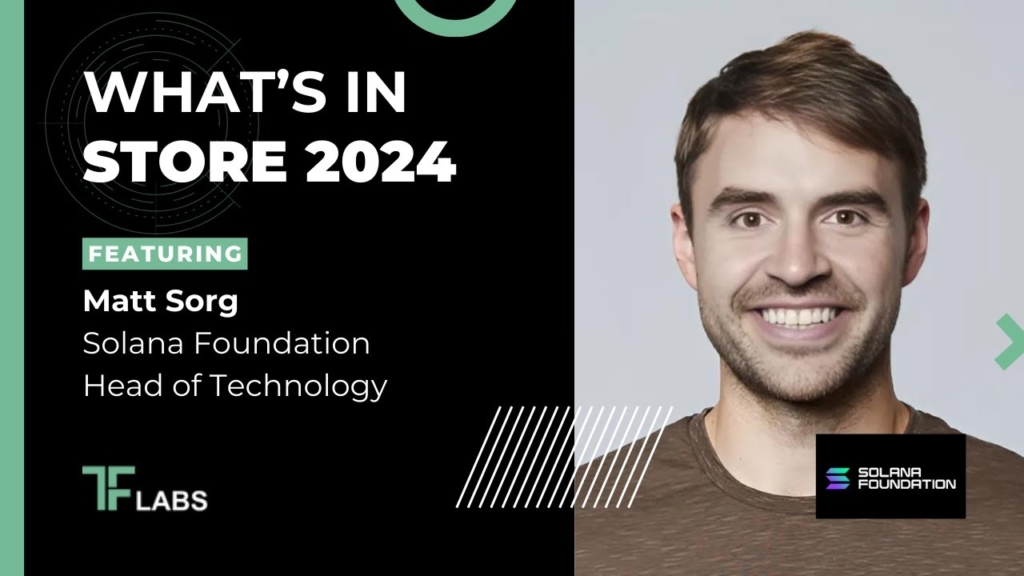Matt Sorg, Vice President of Technology at the Solana Foundation, recently shared insights on how Solana is tackling challenges related to scaling and network congestion while maintaining its reputation for high-speed and low-cost transactions.
In an interview, he highlighted that Solana processes more daily transactions than all other blockchains combined, positioning it as a leader in the blockchain space.
To stay ahead in the rapidly evolving blockchain ecosystem, Solana is committed to continuous updates and innovations. One significant improvement has been the rewriting of the QUIC protocol to enhance transaction flow.
Although the network faced some initial outages, Sorg noted that these issues have largely been resolved as part of the network’s growth and optimization efforts.
For startups and developers, Solana provides a mature ecosystem that eliminates the need to build foundational infrastructure from scratch, such as wallets and on-ramps.
This allows new projects to concentrate on their core functionalities, making Solana an attractive platform for launching initiatives. Its proven scalability sets it apart from other chains that only make promises regarding performance.
Sorg discussed the technical challenges of maintaining high throughput and low latency as the network expands. The Solana team is actively addressing bottlenecks that arise during growth phases, including congestion from Web2 components. These challenges are being met with engineering improvements to ensure reliable transaction processing, even during peak demand.
The Solana ecosystem offers developers ready-made tools and SDKs, enabling them to mint tokens or NFTs without extensive technical knowledge. For those needing custom solutions, support for SVM and Rust programming is available, allowing for more complex project development.
Regarding the rise of meme coins, Sorg acknowledged the unpredictable nature of Solana’s ecosystem, where social media can drive the creation of new coins. He compared meme coins to a zero-sum lottery, emphasizing that Solana is focused on attracting serious projects that can leverage its liquidity and functionality.
Cross-chain interoperability is becoming increasingly important for Solana. The network’s composability ensures that transactions are reliable, either completing fully or failing without partial execution. Solana aims to bridge assets from other chains, creating a low-friction environment that enhances liquidity and facilitates the movement of valuable assets into its ecosystem.
To improve decentralization and security, Solana employs a permissionless validator system, allowing anyone to join or leave freely. A notable upcoming development is Firedancer, a second validator client designed to enhance network stability and decentralization by providing redundancies and enabling seamless switching between clients.



